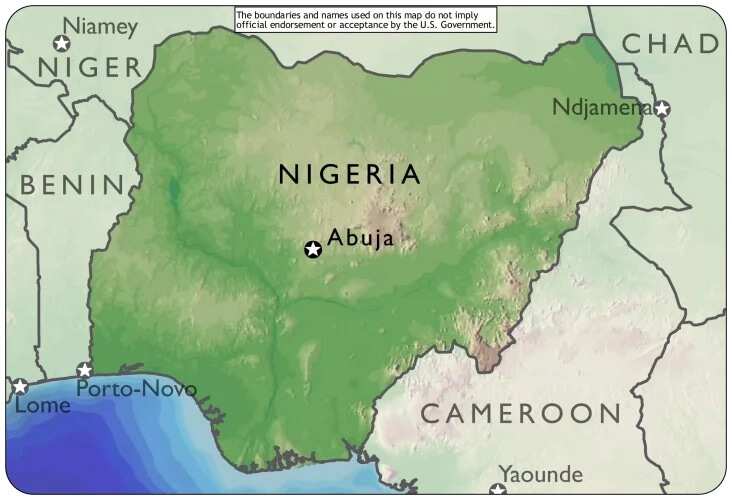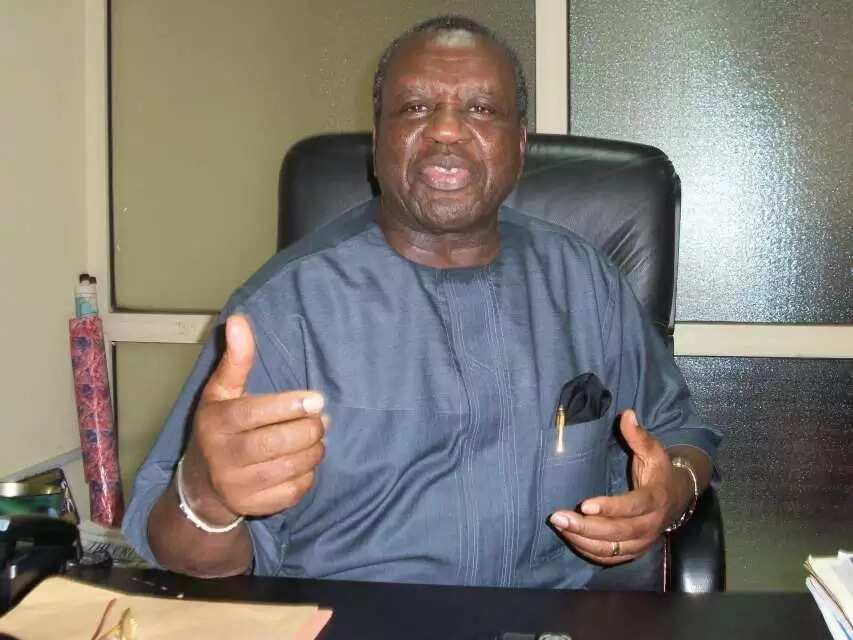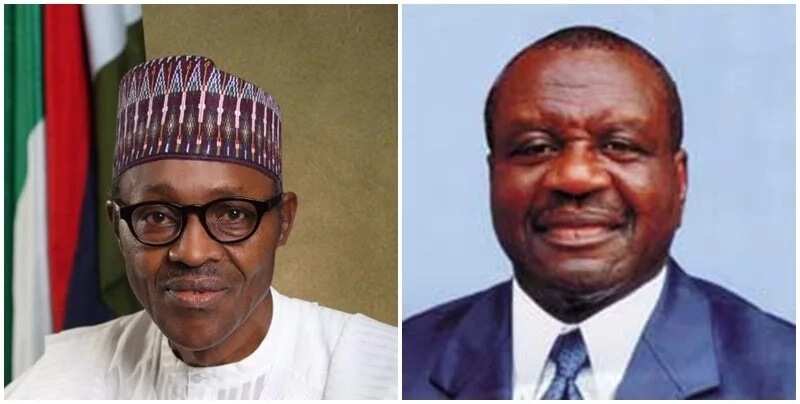The Scope of Nigerian Federalism 🇳🇬
 The increasing agitation for a functional federal system or what is referred to as ‘true federalism’ in the Nigerian parlance, after the democratic transition that culminated in civil rule in 1999 is an indication that all is not well with the existing practice of federalism in Nigeria. The apparent defects in the federal system, no doubt, provide the basis for this agitation. Nigeria is a federation operating a federal constitution but in practice the country works as a unitary state, a fallout of the centralising tendencies that have come to characterise the governmental system. However, there seems to be a consensus, especially in the southern part of the country that the operation of federalism in Nigeria does not conform to the fundamental principles of federalism. As Wheare (1963: 20) argues, ‘a country may have a federal constitution, but in practice it may work that constitution in such a way that its government is not federal’. Also, as Erk (2004: 3) suggests, ‘the presence of a federation should not blind us to the absence of federalism’. In other words, there may be a federation without federalism. The Nigerian model is argued to be a reflection of such an incomplete federal arrangement.
The increasing agitation for a functional federal system or what is referred to as ‘true federalism’ in the Nigerian parlance, after the democratic transition that culminated in civil rule in 1999 is an indication that all is not well with the existing practice of federalism in Nigeria. The apparent defects in the federal system, no doubt, provide the basis for this agitation. Nigeria is a federation operating a federal constitution but in practice the country works as a unitary state, a fallout of the centralising tendencies that have come to characterise the governmental system. However, there seems to be a consensus, especially in the southern part of the country that the operation of federalism in Nigeria does not conform to the fundamental principles of federalism. As Wheare (1963: 20) argues, ‘a country may have a federal constitution, but in practice it may work that constitution in such a way that its government is not federal’. Also, as Erk (2004: 3) suggests, ‘the presence of a federation should not blind us to the absence of federalism’. In other words, there may be a federation without federalism. The Nigerian model is argued to be a reflection of such an incomplete federal arrangement.Read also: Dangers of a cell phone
This article seeks to portray Nigeria as a federation without federalism. It further seeks to examine the quest of the Nigerian people for an authentic federal system. The starting point, therefore, is to make a conceptual clarification between federalism and federation. This helps to avoid the danger of misapplication and also put the article in a proper theoretical perspective.
Federalism and Federations Concepts
Federalism, like most Social Science concepts, has no standard definition as it ‘may mean all things to all men’ (Duchacek, 1970: 189). However, the difficulty in defining this concept has not stopped earlier writers from bequeathing to us some valuable definitions. Federalism has been defined variously as a political philosophy and an ideological position a ‘political principle’ involving ‘the constitutional diffusion of power’ between the central and the constituent governments to achieve ‘self-rule and shared rule and a ‘value concept’ that informs federation
Federalism may mean different things to different people, but what appears to be constant about this political system is the intrinsic principle that distinguishes it from other systems. This principle, which Wheare (1963: 10) called the federal principle, has been defined as the ‘method of dividing powers so that the general and regional governments are each, within a sphere, co-ordinate and independent’. What is meant by ‘independent’ here is that each tier of government has its own independent functions and neither has supreme authority over the other. However, this view poses problem of applicability because some measures of interdependence and cooperation are necessary for the successful operation of any given federal system. Therefore, federalism refers to a system of government in which powers are shared between the central (federal) government and the federating/constituent/component units (or states as used in Nigeria).
Federation, on the other hand, is a state in which both the central government and the constituent governments ‘rule over the same territory and people and each has the authority to make some decisions independently of the other’ . Also, as posits, a federation is a sovereign state in which the central government incorporates governments of regional units into its decision-making procedure on some constitutionally entrenched basis. Thus federation is a state with two or more tiers of government in which there is a constitutional division of power between the central government which is in charge of the whole territory and the constituent units. Given these definitions, therefore, Nigeria is a federation. An average citizen in Nigeria is subjected to at least two main levels of authority: that of the state and the country, but does the federation practice federalism?
The country’s constitution entrenches a clear division of competence between the federal government and the 36 states that make up the federation. There are basically two legislative lists – the exclusive and concurrent lists. Functions not specified in these two are assigned to the state governments as residual functions, and as we know, ‘whoever has the residue, neither general nor regional government is subordinate to the other’ (Wheare, 1963: 12). With this constitutional arrangement, it is not difficult to see the dominance of the federal government or put differently, the subordination of the states to the centre.

Nigeria, a previously unitary state, which later became a federation in the year 1954. Nigeria’s founding fathers desired a federal political framework, believing that federal states have the structural capacity to accommodate diversity. Besides this desire, there was also the presence of certain socio-economic conditions (Babalola, 2013; Suberu, 2001). Although Riker (1964) had earlier argued against the relevance of these conditions, Babalola (2013) has convincingly argued that Riker’s rejection of social and economic conditions in the creation of the Nigerian Federation is unsustainable. The presence of these factors evidently explains why the initial three-region federation that emerged in the year 1954 reflected the cultural, political and economic differences among the three largest ethnic groups in the country – the Hausa-Fulani, Yoruba and Igbo – which dominated the then Northern, Western and Eastern Regions respectively.

The role of the country’s military in shaping the character of the Nigerian federation cannot be overemphasised. Before the year 1966 when the military intervened in the political affairs of the country through a coup d’état, the constituent units enjoyed substantial political and economic powers. However, the civil war (1967-1970) brought about a number of political and economic measures, which in turn resulted in the federal government talking a central role, particularly in economic activities. Throughout the the years of war, the states were subordinated to the centre, apparently for the effective control of the various divisions of the military. The central government took over revenue sources previously controlled by the states, thereby contributing to a fall in the states’ revenues. Thus, the concentration of economic powers at the centre resulted in the supremacy of the federal centre as well as the over-centralisation of the federal system.
The (oil) boom that took place in1973, which coincided with the era of military rule also increased the economic centrality of the federal government. With the federal government enjoying enormous revenue, particularly from oil sales, the centre became the sole distributor of oil rents, dictating which state got what share of the national oil wealth. The states, in turn, became extensions of the federal government rather than independent tiers of government. By 1999 when Nigeria returned to civilian rule, the character of its federal system had significantly changed from ‘bottom-heavy’, that it used to be at inception to ‘top-heavy’. What exists today is a federation in which the states are fiscally dependent on the centre. This is a negation of the federal principle that enjoins independence among the governments of a federation.
The effect of excessive concentration of revenue at the centre began to manifest in 2015 when state governments started finding it increasingly difficult to balance their budgets. This problem arose when the states began to experience a drop in federal allocations, which is a result of the drop in the price of oil in the international market because public finance is mainly dependent on oil revenue. It is, therefore, not surprising that Nigerians, especially from the south, began to clamour for the practise of ‘true federalism’.
The Clamour for ‘True Federalism'
In Nigeria, true federalism means different things to different people. The newfound phrase could be better understood using a geo-political lens. Let us begin with the south-west, which is dominated by the Yoruba.
The agitation for true federalism started in the south-west immediately after the annulment of the 1993 presidential election, believed to have been won by a Yoruba man. The Yoruba elite had argued that the election was annulled simply because their northern counterparts were not willing to concede political power to the south. Hence, their vigorous campaign for a ‘power shift’ to the south. By power shift, they meant an end to the northern elites’ stranglehold on political power and, by extension, economic power. However, with a Yoruba man, Olusegun Obasanjo, emerging as the president in the year1999, the clamour for power shift became almost absolute and was replaced with that of ‘true federalism’. By true federalism, the Yoruba elite mean a federal system with a weak centre; a system in which the constituent units are independent of the centre, especially in the fiscal sphere.
The cry yearling of marginalisation has been loud in the south-eastern part of the country, home to the Igbo ethnic group. The Igbo’s position as regards the Nigeria’s federal system is that the system is characterised by lopsidedness, particularly in the allocation of national resources. Another ground of Igbo agitation for true federalism is their perception of non-integration into mainstream politics since the end of the civil war in 1970, citing lack of federal presence in the region. This sense of lack of belonging informs the views of some pro-self-determination groups like the Movement for the Actualisation of the Sovereign State of Biafra (MASSOB) and Indigenous People of Biafra (IPOB) that the Igbo people are no longer interested in being part of Nigeria and should be allowed to secede and form an independent state of Biafra. It is, however, doubtful if the campaign for the resurgence of Biafra is popular among the elite of south-east whose political and business interests cut across the country. By true federalism, therefore, the Igbos of the south-east mean a federal practice that accommodates every ethnic group in the multinational federation.
Similarly, a sense of political and economic marginalisation forms the basis upon which the minorities in the Niger Delta (or the south-south geo-political zone), where the largest quantity of Nigeria’s oil is located, persistently demand their own exclusive political space using the euphemism of ‘resource control’ and true federalism. In the Nigerian context, the term resource control means the right of a federating unit to have absolute control over the mineral resources found within its jurisdiction and make contributions to the central government to fund federal responsibilities. The perceived injustice in resource distribution is the main driving force for the struggle for resource control. The oil-producing states have repeatedly argued that Nigeria’s fiscal federalism, which encourages lopsided distributive politics, has been unfair to them. For the people of the Niger Delta, therefore, resource control is a solution to marginalisation. Thus, for the people of this region, true federalism means a federal practice whereby the federating units are allowed to own and manage their resources as they desire.
Seemingly, the northern elite wants the status-quo to remain based on the belief in some quarters that the present system favours its interest. These include the federal character principle, majority representation at the federal level and quota system.
Problems of federalism in Nigeria


1. Inter-ethnic rivalry: Nigeria, we all know, is made up of the diverse group of people with different ethnic groups and the rivalry among Hausa/Fulani, Yoruba and Igbo has become a serious issue over time.
In Nigeria, we see the different set of people from different geopolitical regions agitating for power which sometimes leads to disagreements and ethnic conflicts among the parties involved. The primary reason for ethnic rivalry in Nigeria is a lack of cohesion and the inability of the parties concerned to concede the defeat in order to promote national peace and unity.
A good example of a leader and a patriotic Nigerian was former president Goodluck Ebele Jonathan, who conceded defeat by congratulating the president elect Mohammadu Buhari via a phone call after election results were announced. We believe he did this in order to promote unity, harmony and peaceful co-existence among Nigerians
2. Power sharing formula: power sharing has been one of the major militating issues against federalism in Nigeria. This basically ensure that certain elective offices such as the office of the president, governors, and chairman are rotated among several geo-political divisions in the country.
3. Revenue allocation: the issue of revenue allocation is another problem confronting federalism in Nigeria. Revenue allocation refers to the sharing formula of the country’s financial resources among the different tiers of government in Nigeria. It is aimed at enhancing economic growth and development, reducing inter-governmental tensions and promoting national unity.
Some of the elites at the helms of affairs, especially at the federal level, have seen revenue allocation as a tool to satisfy their unquenchable taste for money.



4. Minority issue and the creation of states: the nature of the multi-ethnicity of Nigeria has brought about the issue of minorities which constitutes one of the major militating problems against the development of the nation.
5. The issue of secession: the inter-ethnic rivalry in Nigeria has constantly disrupt development in the country. The issue of secession is a major factor disrupting the federalism in Nigeria and it also has a way of affecting the growth and development of the country.
A good example of this is the current issue of the NDA (Niger-delta avengers) who are clamouring to secede from Nigeria and form their own republic. And as a result of this they resolve incident using violent measures, which include the bombing of pipelines and vandalizing government properties just to prove a point.
Possible solutions to the problems of federalism in Nigeria


What about solutions let's hear the good words of Chief Victor Attah, a former Governor of Akwa Ibom state. He says that the practice of fiscal federalism is the panacea to the problems plaguing Nigeria. Attah said that if government accepted fiscal federalism, most of Nigeria’s problems would be solved.
“If the government just accepts the principle of fiscal federalism, the states should control what they have and pay certain percentages to the center. Believe me, I can say categorically that at least 90 per cent if not 100 per cent of issues confronting Nigeria today will be solved''.


According to him, if fiscal federalism is practiced, the demand for separation and talk of disintegration of the country will stop and the country will develop drastically.
“You cannot tell a governor to diversify. What do you mean by diversify? A governor knows that whether or not he diversifies, at the end of month he collects money from Federal Allocation. If a governor knows that he will have no money to run the state because he has not developed agriculture, he will certainly diversify into agriculture and same with solid minerals and others''.
Attah explained that fiscal federalism, when practiced, would make the 36 states of the federation viable.


“People say that 36 states are not viable. I say the opposite. It is not true. The 36 states are eminently viable, if we just cut our coat according to our cloth and if we accept the fact that the states were created purely on the basis of viability’’ .
He noted that the practice of fiscal federalism would not disintegrate the country, urging stakeholders and governors to abide to true democratic principles in order to save the country.


To crown it up, if we listen to the words of the former Governor, then the solution of all our problems is lying on the surface. We believe that one day the present government will pay attention to the issues proposed in this article about Nigerian federalism and our grandchildren, maybe even children would live in a flourishing country!
Conclusion
We have been able to put Fort in this article that central to the agitations for true federalism in Nigeria is about struggle for access to national resources. Oil rents and their distribution have shaped the operation of Nigeria’s federal system and have also contributed largely to the failure of federalism in Nigeria. Nigeria’s history of revenue distribution is about each ethnic group or geo-political region seeking to maximise its share of national resources. One reason for the acrimonious revenue allocation system is that Nigeria’s component units lack viable sources of revenue of their own. Also, the economic disparity that has given rise to unequal development among them is another source of contention. Therefore, any future political reform must ensure the accommodation of the country’s ethnic diversity because this is one of the many ways national unity could be achieved.
As a way out of the over-centralisation of the system, the country’s fiscal federalism should emphasise revenue generation rather than revenue distribution, as this would ensure fiscal viability of the states. Any future reform should be tailored towards the states generating their own revenue and those not endowed with resources should devise strategies to generate revenue from other sources. Internally-generated revenue should only complement a state’s share of federally collected revenue. Moreover, with decentralisation of economic resources, the states would be in relative control of their resources and be less dependent on the centre.
A weakening of the federal centre may not be a bad idea but Nigeria needs a federal system that would ensure the relative supremacy of the central government vis-à-vis the state governments. The size of the federation, as well as its ethnic diversity and economic disparity, requires a relatively strong federal government that would be able to regulate the competition for national resources.
Lets draw the cotton at this juncture to the very end that Nigerian federalism is defective and reforms are inescapable. The unending quest for true federalism, political restructuring, and self-determination within the context of the ethnically heterogeneous Nigerian federation will disappear until the political leaders reform the institutions and structures of the federal system to give a semblance of genuine federalism.
Suggested citation: Babalola, D. 2017. *‘Nigeria: A Federation in Search of Federalism’. 50 Shades of Federalism. Available at: http://50shadesoffederalism.com
*https://www.researchgate.net/publication/233471843_The_Nigerian_federal_system_Performance_problems_and_prospects#downloadCitation
Bibliography
Babalola, Dele (2013), “The Origins of Nigerian Federalism: The Rikerian Theory and Beyond”, Federal Governance, Vol. 8, No. 3, 43-54.
Burgess, Michael (1993), “Federalism and Federation: A Reappraisal” in Burgess, M and Gagnon, Alain-G (eds.), Comparative Federalism and Federation: Competing Traditions and Future Directions, New York; London: Harvester Wheatcheaf.
Duchacek, Ivo (1970), Comparative Federalism: The Territorial Dimension of Politics, Lanham; London: University Press of America Inc.
Elazar, Daniel (1987), Exploring Federalism, Alabama: The University of Alabama Press.
Erk, Jan (2004), ‘Austria: A Federation without Federalism’, Publius, The Journal of Federalism, 34: 1, 1-20.
King, Preston (1982), Federalism and Federation, Baltimore: Johns Hopkins University Press.
Riker, William (1964), Federalism: Origin, Operation, Significance, Boston: Little, Brown and Company.
Suberu, Rotimi (2001), Federalism and Ethnic Conflict in Nigeria, Washington, D.C.: United States Institute of Peace Press.
Wheare, Kenneth (1963), Federal Government, 4th ed., London: Oxford University Press.
🔚
Please leave a comment to help prayingpraise improve in her content
🔚
Please leave a comment to help prayingpraise improve in her content
Comments